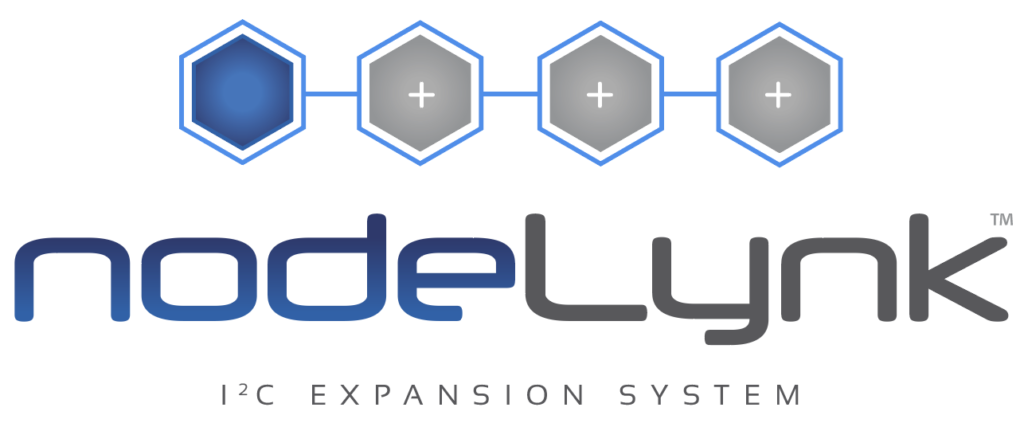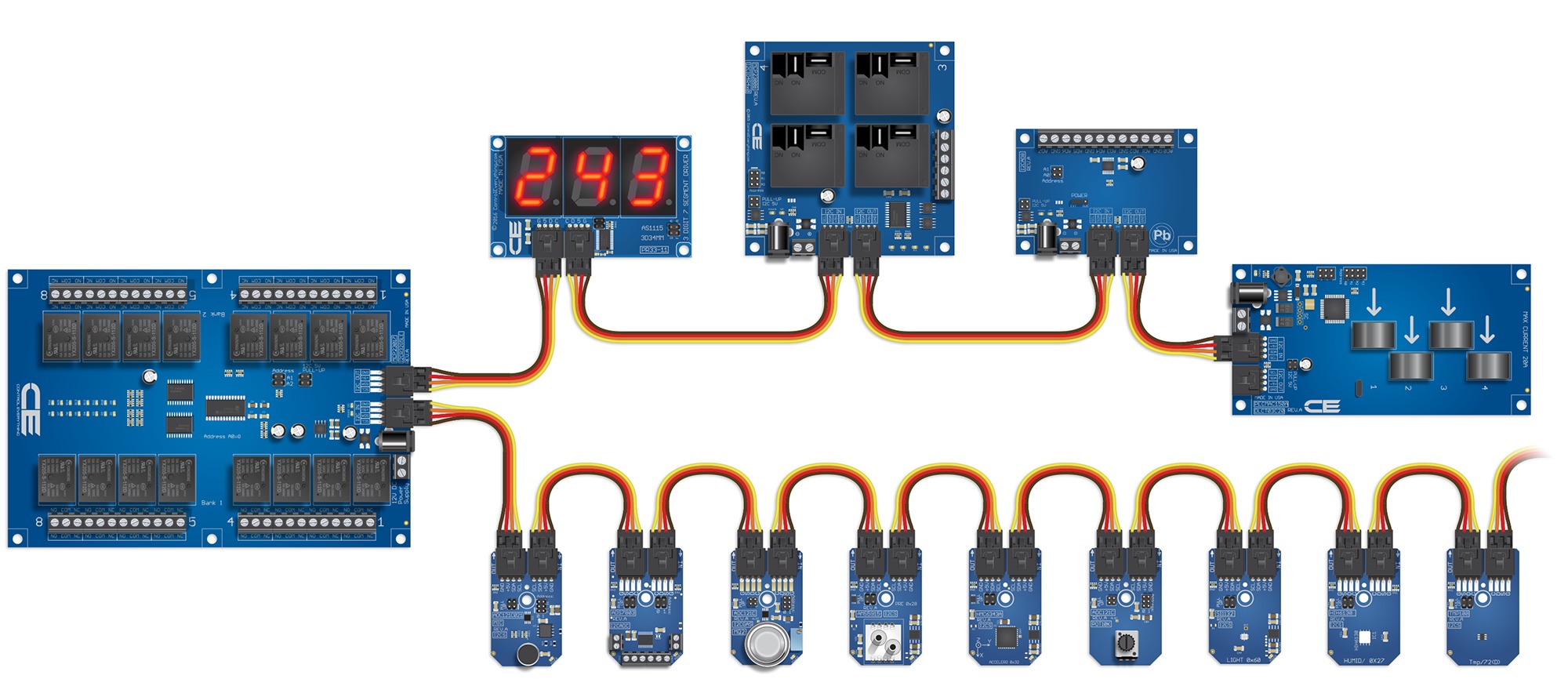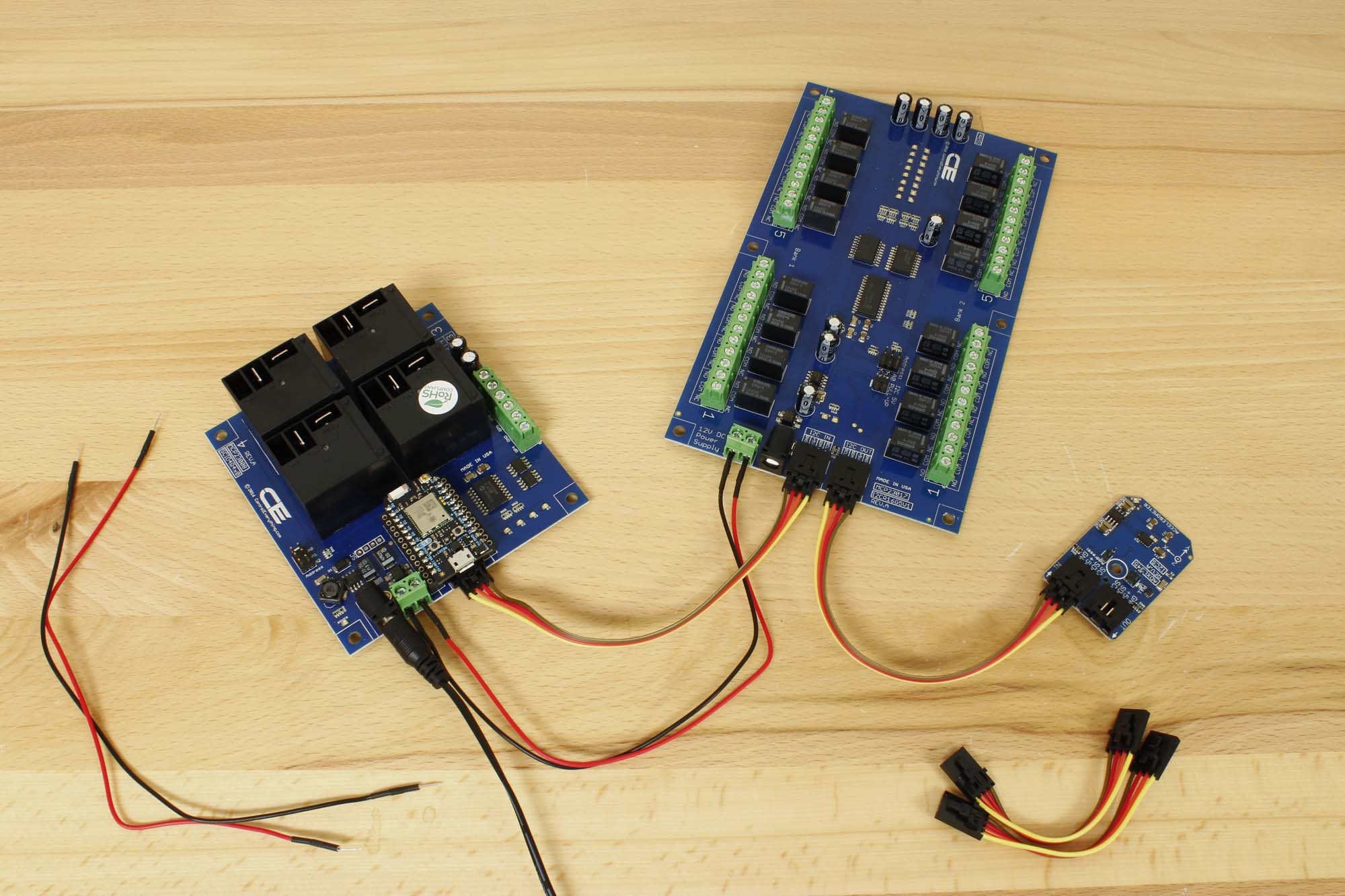ADXL345 3-Axis Accelerometer 13-Bit I2C Mini Module
Manufactured by Analog Devices, the ADXL345, is a low-power 3-axis accelerometer with high-resolution 13-bit measurement at up to ±16g.
It measures the static acceleration of gravity in tilt-sensing applications, as well as dynamic acceleration resulting from motion or shock.
Its high resolution (4 mg/LSB) enables measurement of inclination changes less than 1.0°. Several special sensing functions are provided. Activity and inactivity sensing detect the presence or lack of motion by comparing the acceleration on any axis with user-set thresholds.
Tap sensing detects single and double taps in any direction. Free-fall sensing detects if the device is falling. These functions can be mapped individually to either of two interrupt output pins. An integrated, patent pending memory management system with a 32-level first in, first out (FIFO) buffer can be used to store data to minimize host processor activity and lower overall system power consumption.
Possible applications include:
- gaming and pointing devices,
- personal navigation devices,
- hard disk drive protection, etc.
All I2C Mini Modules are designed to operate at 5VDC. Using a convenient 4-Pin plug, devices can be daisy-chained onto the I2C Bus, eliminating the need for soldering. Simply plug together the devices you need for your next automation application.
Pull-up resistors are included with all NCD master devices. If you are wiring in your own I2C port, on-board 4.7K jumper-selectable pull-up resistors are available for convenience purposes.
FREE I2C cable included.

nodeLynk™ Device
This is a nodeLynk device, it will require a nodeLynk Master Adapter for proper operation. nodeLynk devices plug into Master microprocessors to easily add hardware sensing and control capabilities.
What is nodeLynk?
Chain expansion devices using nodeLynk. Connect a wide variety of accessories to expand the capabilities of a nodeLynk compatible controller. Use nodeLynk to add Relay Controllers, Sensors, PWM Drivers, Displays, and a wide variety of 4-20mA, 0-10V ADCs and DACs, as well as a wide array of TTL & Isolated GPIO devices. All nodeLynk devices use I2C communications to chain devices together. nodeLynk is an easy way to expand functionality without soldering. nodeLynk allows expansion in seconds so you can focus on your software and firmware development.

What is the nodeLynk I2C Interface?
NCD is the creator of plug and play modular hardware using nodeLynk, which is hardware I2C Interface connector standard. nodeLynk I2C devices allow you to chain together several devices on the I2C bus, and communicate to each device individually at high speed (subject to the limitations of I2C). The nodeLynk I2C Interface uses a standard 4-Pin I2C Input and I2C Output connector. nodeLynk I2C devices communicate 5V I2C data and provides 5V DC power through this connector. nodeLynk I2C devices use standard I2C communications for all data transport, which is supported by nearly every microcontroller in production today. The nodeLynk I2C Interface is strictly a 5V standard, which is ideal for transport across longer cables. nodeLynk I2C devices always include a 6″ (152mm) 4-conductor I2C cable. nodeLynk I2C Mini Modules always include a 3″ (76mm) 4-conductor I2C cable. Cables and connectors are available separately for designers who would like to include their own nodeLynk I2C Interface into their designs.
Plug and Play Connectivity
nodeLynk I2C devices will plug in to any available nodeLynk I2C Output. This includes just about everything we make in the NCD IoT Category, including all NCD IoT devices. We also manufacture a wide range of I2C adapters that make it easy to plug nodeLynk I2C Devices directly into most computing platforms. nodeLynk I2C Interface adapters are available for Arduino, Banana Pi, BeagleBone, Bluz, ESP8266, Onion Omega, Particle Photon and Electron, PyCom, Raspberry Pi, 2, 3, and Zero, and Windows. We are always working to add new platform support for nodeLynk I2C devices. nodeLynk I2C Interface devices are compatible with just about everything in the microcontroller industry.
Unlimited I2C Expansion
Based on our plug-and-play I2C interface standard, all nodeLynk I2C devices are equipped with a I2C output port, making it easy to expand to a wide variety of sensors, current monitors, relay controllers, PWM controllers, and much more! We are always designing new expansions for our modular plug-and-play I2C framework. We are dedicated to building a product line of interconnected devices to simplify all forms of automation. Re-use or upgrade your hardware in seconds by selecting the modules that best fit your needs, and chaining them together using the included I2C expansion cables!

A Raspberry Pi (above) is connected to a nodeLynk Master adapter. nodeLynk devices are chained to the Raspberry Pi nodeLynk Master using I2C communications. Each nodeLynk device must have a different I2C address for proper operation of the chain. Note that some nodeLynk I2C devices have a fixed address while others allow configuration of the address across a limited range of addresses.
Powering nodeLynk I2C Interface Devices
Some nodeLynk I2C devices require a external power supply, others may be powered through the 4-Pin I2C bus connector at 5VDC, and other devices are jumper selectable between external and I2C bus power. All I2C mini modules are powered through the 5V I2C bus connector, greatly simplifying connectivity.
Mechanical Drawing
Datasheets
Documentation Downloads
I2C Interface Compatibility
NCD I2C Interface devices are designed to plug in to many popular IoT computing platforms. This allows the “brains” from other manufacturers to directly plug into our devices for easy plug-and-play operation. I2C interface devices use I²C as the underlying communications technology. The notes below will guide you into plugging 3rd party technologies into our devices, we will highlight any adapters that may be required in this section. Please note that all NCD I2C Interface Devices can be chained together to any other Cross-Platform I²C Slave Devices using the I²C Output. Additionally, NCD I2C devices may be plugged into the I2C Output of NCD IoT Interface devices. A complete list NCD I2C Interface adapters is available by clicking here.
Arduino Interface
- Plug this device into the Arduino Micro I2C Shield
- Plug this device into the Arduino Nano I2C Shield
- Plug this device into the Arduino Uno I2C Shield
- Plug this device into the Arduino Due I2C Shield
Banana Pi Interface
- Plug this device into the Banana Pi I2C Shield
BeagleBone Interface
- Plug this device into a BeagleBone I2C Shield
Bluz Bluetooth Interface
- Plug this device into the Bluz I2C Shield (with power)
C.H.I.P. Interface
- Plug this device into the C.H.I.P. I2C Shield
ESP8266 Interface
- Plug this device into the NodeMCU ESP8266 I2C Shield
- Plug this device into the Adafruit Huzzah ESP8266 I2C Shield
Particle Interface
- Plug this device into a Particle Photon WiFi I2C Shield
- Plug this device into a Particle Electron Cellular I2C Shield
Onion Omega 1 & 2 Interface
- Plug this device into a Onion Omega I2C Shield
PyCom Interface
- Plug this device into a PyCom WiPy, WiPy2, and LoPy I2C Shield
Raspberry Pi Interface
- Plug this device into a Raspberry Pi I²C Interface Adapter
- Plug this device into a Raspberry Pi 2/3 I²C Interface Adapter
- Plug this device into a Raspberry Pi Zero I²C Interface Adapter
Windows 8/10 PC USB Interface
- Plug this device into a USB to I2C Converter
- Plug this device into the BridgeX5 Series Controller
Out of stock























